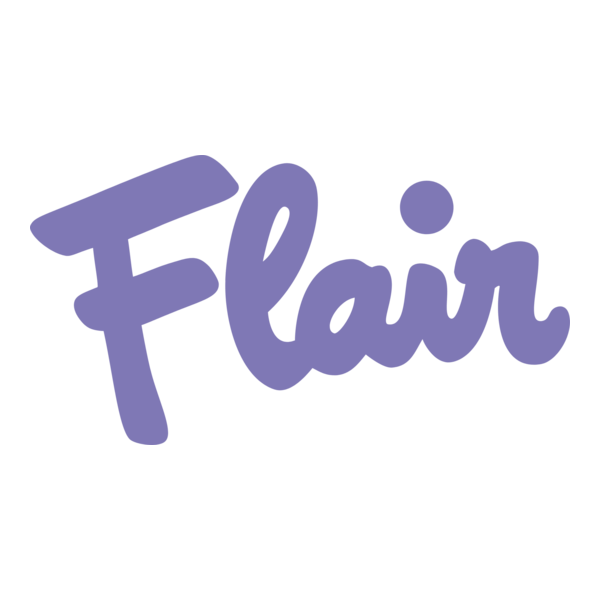
Flair.ai: Complete Buyer's Guide
AI-powered design studio for ecommerce product photography
Flair.ai positions itself as a specialized AI-powered design studio for ecommerce product photography, targeting the critical challenge of creating studio-quality product images at scale. The platform combines generative AI with intuitive design tools through a drag-and-drop interface, 3D asset integration, and AI-powered editing capabilities specifically engineered for fashion and beauty retailers[40][41][44].
Market Position & Maturity
Market Standing
Flair.ai operates within the rapidly expanding AI image editing market, which projects growth from $5.12 billion in 2025 to $39.7 billion by 2030, reflecting approximately 50.63% CAGR[9]. The platform positions itself as a specialized solution within this broader market, focusing specifically on ecommerce product photography with particular strength in fashion and beauty verticals.
Company Maturity
Company maturity indicators suggest a developing but stable platform. The availability of multiple pricing tiers, including enterprise-level options at $199/month, indicates operational scale sufficient for mid-market deployments[47][56].
Growth Trajectory
Expanding customer base with documented implementations across various business sizes and successful processing of high-volume catalogs. The platform's ability to handle 15,000 SKUs in 3 weeks for a multinational retailer suggests infrastructure capable of supporting enterprise-scale operations[55].
Industry Recognition
Industry recognition appears moderate, with a 4.3/5 rating on SaaSworthy providing some third-party validation[51][53].
Strategic Partnerships
Strategic partnerships and ecosystem positioning remain unclear from available research, though API capabilities suggest integration readiness with ecommerce platforms.
Longevity Assessment
Longevity assessment indicates reasonable stability for continued operation, supported by diverse customer base, multiple pricing tiers, and proven technical capabilities.
Proof of Capabilities
Customer Evidence
Real-world performance evidence includes a multinational retailer processing 15,000 SKUs in 3 weeks using the platform's API, achieving substantial reduction in manual editing requirements and demonstrating enterprise-scale processing capabilities[55].
Quantified Outcomes
A jewelry seller achieved dramatic efficiency gains, reducing image production time from 3 hours to 15 minutes per product while maintaining brand consistency across their catalog[54][59].
Case Study Analysis
Fashion industry validation comes from a US fashion brand that reportedly reduced product photoshoot costs while increasing social media engagement through Flair.ai-generated content[55].
Market Validation
Market validation includes a 4.3/5 rating on SaaSworthy, with particular strength noted in 'creative flexibility'[51][53].
Competitive Wins
Competitive performance evidence suggests the platform holds its own against established alternatives in specific scenarios. While competitors like Remove.bg excel in bulk processing capabilities, Flair.ai's scene-composition capabilities and fashion-specific features provide clear differentiation for target use cases[44][46][50].
Reference Customers
Customer retention indicators suggest satisfaction among existing users, though specific retention metrics are not publicly available. The diversity of customer implementations from SMB to enterprise scale indicates platform flexibility and broad market applicability within target verticals[54][55][59].
AI Technology
Flair.ai's AI engine centers on proprietary algorithms that handle product preservation during background replacement, resolution enhancement, and on-model clothing simulation[41][44].
Architecture
Architecture and deployment follow a cloud-based SaaS model with API integration capabilities for automated workflows, enabling batch processing of product catalogs[56][58].
Primary Competitors
Primary competitors include Photoroom for API-driven background removal, Remove.bg for high-volume processing, and Crop.photo for bulk editing capabilities[50][55].
Competitive Advantages
Competitive advantages stem from Flair.ai's specialized focus on ecommerce product photography. The platform's scene-composition capabilities using 3D props, lighting control, and background elements represent unique offerings not widely available in competing solutions[44][46].
Market Positioning
Market positioning analysis reveals Flair.ai as a mid-tier specialized solution rather than a broad market leader. While competitors focus on either bulk processing (Remove.bg) or general-purpose editing (Photoroom), Flair.ai targets the specific intersection of creative control and operational efficiency for fashion retailers[44][46][50].
Win/Loss Scenarios
Win/loss scenarios depend heavily on specific business requirements and use case priorities. Flair.ai wins against alternatives when businesses require creative scene composition, fashion-specific features, and brand consistency across multiple channels[44][46][55].
Key Features

Pros & Cons
Use Cases
Integrations
Pricing
Featured In Articles
Comprehensive analysis of Image Editing for Ecommerce for Ecommerce businesses and online retailers. Expert evaluation of features, pricing, and implementation.
How We Researched This Guide
About This Guide: This comprehensive analysis is based on extensive competitive intelligence and real-world implementation data from leading AI vendors. StayModern updates this guide quarterly to reflect market developments and vendor performance changes.
59+ verified sources per analysis including official documentation, customer reviews, analyst reports, and industry publications.
- • Vendor documentation & whitepapers
- • Customer testimonials & case studies
- • Third-party analyst assessments
- • Industry benchmarking reports
Standardized assessment framework across 8 key dimensions for objective comparison.
- • Technology capabilities & architecture
- • Market position & customer evidence
- • Implementation experience & support
- • Pricing value & competitive position
Research is refreshed every 90 days to capture market changes and new vendor capabilities.
- • New product releases & features
- • Market positioning changes
- • Customer feedback integration
- • Competitive landscape shifts
Every claim is source-linked with direct citations to original materials for verification.
- • Clickable citation links
- • Original source attribution
- • Date stamps for currency
- • Quality score validation
Analysis follows systematic research protocols with consistent evaluation frameworks.
- • Standardized assessment criteria
- • Multi-source verification process
- • Consistent evaluation methodology
- • Quality assurance protocols
Buyer-focused analysis with transparent methodology and factual accuracy commitment.
- • Objective comparative analysis
- • Transparent research methodology
- • Factual accuracy commitment
- • Continuous quality improvement
Quality Commitment: If you find any inaccuracies in our analysis on this page, please contact us at research@staymodern.ai. We're committed to maintaining the highest standards of research integrity and will investigate and correct any issues promptly.